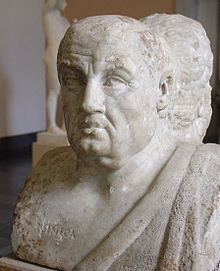When it Comes to Leadership, Old School Rules
I’ve been hearing the term ‘old school’ a lot these days, and it seems to me that its meaning changes depending on how it’s used, not only in a sentence but by who is using it.
I know it to mean things from a different time that are still considered valuable. It’s also used to define something old that’s valid, but its mode of dissemination is out-dated, so it lacks appeal. Then again, there are those who use it simply to describe anything that’s ‘un-cool.’
 When it comes to leadership, I would say that old school rules never go out of style. They remain constant as do their core values. Although the methods we have at our disposal today to disseminate knowledge are light years away from the how they once were, the principles practiced by ancient leaders and philosophers are as vibrant today as they were centuries ago.
When it comes to leadership, I would say that old school rules never go out of style. They remain constant as do their core values. Although the methods we have at our disposal today to disseminate knowledge are light years away from the how they once were, the principles practiced by ancient leaders and philosophers are as vibrant today as they were centuries ago.
We study and emulate their philosophies today, and build on the legacies. That’s because the best leadership is grounded by good ethics and sound judgment.
The world was smaller then. Leaders depended on scribes to document their words, and sent messengers on foot, horseback and even camels to carry their vision and mission to surrounding villages. Today, a tweet goes around the world. That’s old school by today’s standards, but irrelevant? I think not.
In fact, I can’t think of any of today’s leaders, who hasn’t borrowed at least some of these 25 quotes from the old masters.
- “He who has great power should use it lightly.” – Seneca
- “Our greatest glory lies not in never failing but in rising every time we fail.” – Confucius
- “Our plans miscarry because they have no aim. When a man does not know what harbor he is making for, no wind is the right wind.” – Seneca
- “Anyone can hold the helm when the sea is calm.” —Publilius Syrus
- “A ruler should be slow to punish and swift to reward.” —Ovid
- “There is only one way to avoid criticism: do nothing, say nothing, and be nothing.” –Aristotle
- “We can easily forgive a child who is afraid of the dark; the real tragedy of life is when men are afraid of the light.” –Plato
- “Teach thy tongue to say, “I do not know,” and thou shalt progress.” –Maimonides
- “It does not matter how slowly you go as long as you do not stop.” –Confucius
- “He makes a great mistake … who supposes that authority is firmer or better established when it is founded by force than that which is welded by affection.” Terrence
- “It is no use walking anywhere to preach unless our walking is our preaching.”— St. Francis of Assisi
- “We are what we repeatedly do. Excellence, then, is not an act, but a habit.” -Aristotle
- “The whole is more than the sum of its parts.” – Aristotle
- “It’s not what happens to you, but how you react to it that matters.” – Epictetus
- “We have two ears and one mouth so that we can listen twice as much as we speak.” – Epictetus
- “We should not moor a ship with one anchor, or our life with one hope.” Epictetus”
- “No great thing is created suddenly.” – Epictetus
- “The only true wisdom is in knowing you know nothing.” -Socrates
- “What we achieve inwardly will change outer reality.” – Plutarch
- “To make no mistakes is not in the power of man; but from their errors and mistakes the wise and good learn wisdom for the future.” – Plutarch
- “Perseverance is more prevailing than violence; and many things which cannot be overcome when they are together, yield themselves up when taken little by little.” – Plutarch
- “Know how to listen, and you will profit even from those who talk badly.” – Plutarch
- “Let us carefully observe those good qualities wherein our enemies excel us; and endeavor to excel them, by avoiding what is faulty, and imitating what is excellent in them.” – Plutarch
- “There is nothing permanent except change.” – Heraclitus
- “First, have a definite, clear practical ideal; a goal, an objective. Second, have the necessary means to achieve your ends; wisdom, money, materials, and methods. Third, adjust all your means to that end.” –Aristotle
Innovation and technology are marvelous. We’ve evolved. We will continue to evolve, as will the tools we use to communicate. The telegraph, the printing press, newspapers, radio, television, the internet – things that were beyond the wildest imagination of all our early leaders combined, can’t transcend the value of their words, spirits, thoughts, and humanity.
Old school? I guess so. But timeless? Yes. Do you agree?
